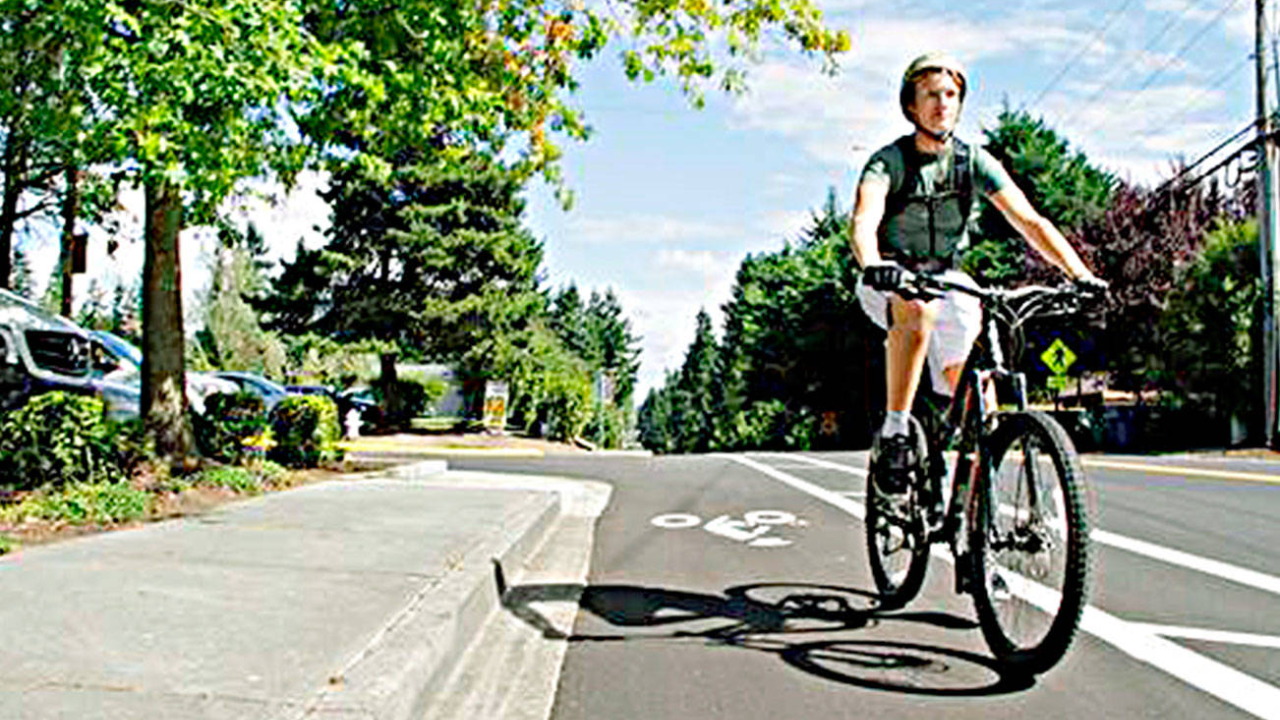The bike-sharing program introduces a fleet of bicycles strategically stationed across various hubs in Kirkland.
These hubs are designed to ensure organized parking and easy accessibility, addressing public concerns about clutter and disorganization often associated with dockless systems.
The hub-based model not only maintains the city’s aesthetics but also encourages responsible usage among riders.
Background and Development
Discussions about implementing a bike-sharing system in Kirkland have been ongoing for several years.
In 2017, the League of American Bicyclists recognized Kirkland as a Bicycle Friendly Community with a bronze designation, highlighting the city’s potential for such initiatives.
Initial considerations included dockless bike-sharing models, similar to those adopted by neighboring cities like Seattle and Bellevue.
However, public feedback indicated concerns regarding the potential for disorganized parking and safety issues.
To address these concerns, Kirkland opted for a hub-based system, ensuring designated parking areas and better management of the bicycle fleet.
Community Engagement and Feedback
The development of the bike-sharing program was heavily influenced by community input. The city conducted extensive public engagement efforts, including surveys and in-person meetings, to gather residents’ opinions and suggestions.
This collaborative approach ensured that the program was tailored to meet the specific needs and preferences of the Kirkland community.
Environmental and Health Benefits
Bike-sharing programs offer numerous advantages, both for individuals and the broader community. Environmentally, increased bicycle usage can lead to reduced traffic congestion, lower energy consumption, and decreased greenhouse gas emissions.
A study published in Sustainability highlighted that such programs in Beijing significantly decreased traffic and improved public health.
From a health perspective, cycling provides an excellent form of exercise, contributing to improved cardiovascular health and overall well-being.
By making bicycles readily available, the program encourages residents to incorporate physical activity into their daily routines, promoting a healthier lifestyle.
Economic and Social Impact
Economically, bike-sharing can lead to savings for individuals by reducing the need for car ownership, parking fees, and fuel costs.
For cities, the benefits include attracting more tourists, who are inclined to use bike-sharing as a convenient exploration mode, and promoting a healthier workforce, potentially reducing healthcare costs.
Socially, the program fosters a sense of community by encouraging residents to explore their city more intimately and engagingly.
It also provides an affordable transportation option, increasing mobility for individuals who may not have access to private vehicles.
Read More:
- Stock Market Reacts to Federal Reserve’s Interest Rate Hike!
- Republican Leaders Express Concerns Over Indiana’s New Tax Relief Plans!
Safety Measures and Regulations
To ensure the safety of all road users, the City of Kirkland has implemented several measures in conjunction with the bike-sharing program. These include:
- Designated Bike Lanes: Expansion and maintenance of bike lanes to provide safe pathways for cyclists.
- Public Education Campaigns: Initiatives to inform both cyclists and motorists about sharing the road responsibly.
- Regular Maintenance: Routine checks and maintenance of the bicycle fleet to ensure they are in safe working condition.
Riders are encouraged to familiarize themselves with local traffic laws and to wear helmets while using the shared bicycles. The city provides resources and guidelines on safe cycling practices on its official website.
Future Outlook
The launch of the bike-sharing program marks a significant step in Kirkland’s journey toward sustainable transportation.
The city plans to monitor the program closely, gathering data on usage patterns and soliciting ongoing feedback from the community to make necessary adjustments and improvements.
By embracing this eco-friendly initiative, Kirkland not only enhances the mobility options available to its residents but also reinforces its commitment to environmental sustainability and public health.
The bike-sharing program is poised to become an integral part of the city’s transportation landscape, offering a convenient, healthy, and green alternative for getting around town.
Disclaimer- Our team has thoroughly fact-checked this article to ensure its accuracy and maintain its credibility. We are committed to providing honest and reliable content for our readers.

